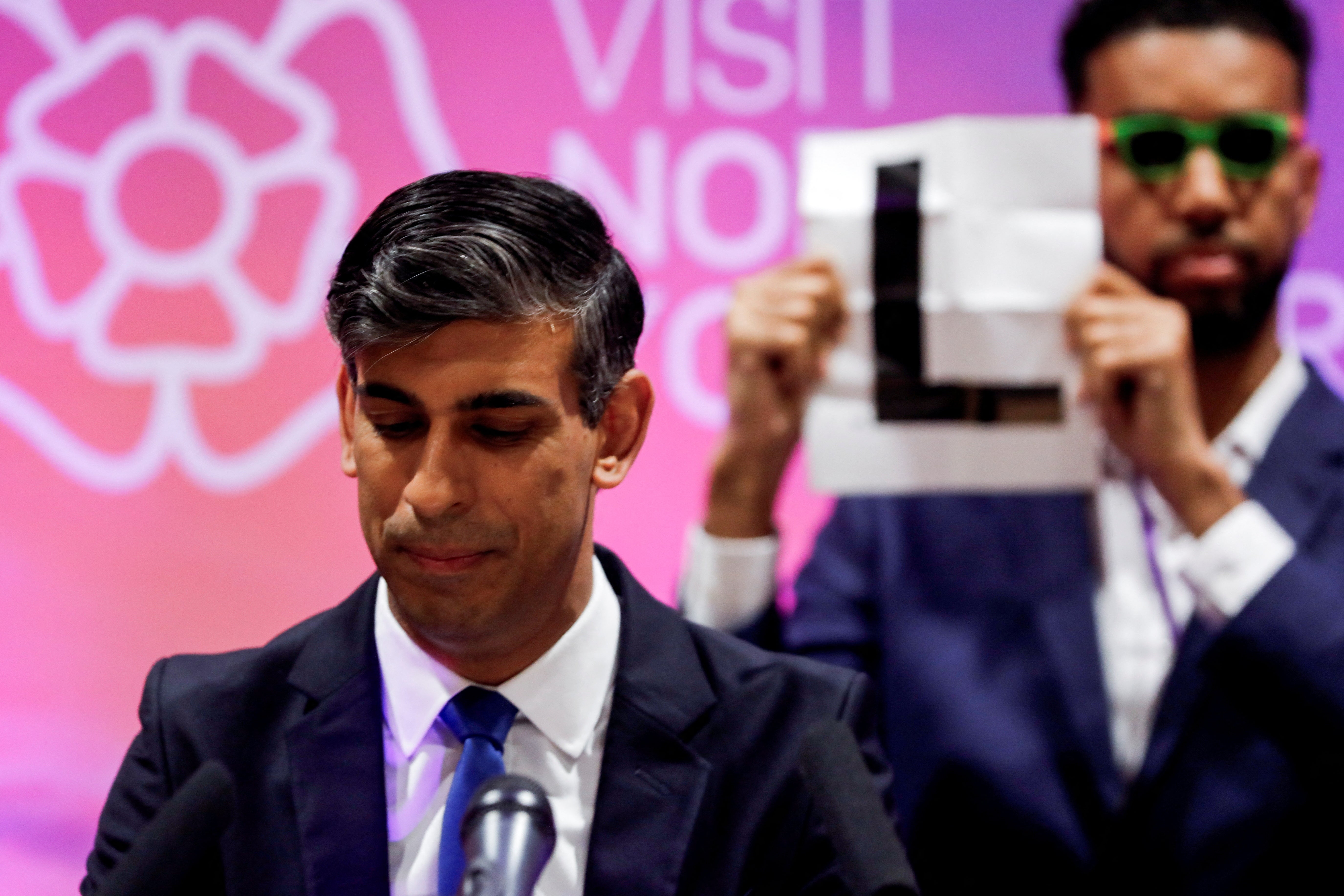The Independent's journalism is supported by our readers. When you purchase through links on our site, we may earn commission.
Polling expert John Curtice on the two major errors that led to the Tory party’s obliteration
Partygate, and the disastrous reign of Liz Truss, meant the Conservatives were done for long before Rishi Sunak called the election


Labour’s success is spectacular. The party’s overall majority of 174 almost matches the majority of 179 that Tony Blair secured in 1997.
Yet it was not a surprise. For most of the campaign, polls of vote intention consistently put Labour 20 points ahead, narrowing only a couple of points at the end.
And at the end, Labour’s lead was much narrower – nine points. However, voters were so keen to eject the Conservatives from office that many voted for whoever seemed best placed to defeat them locally, be they Labour, the Liberal Democrats, or in some instances Reform or the Greens. With the Conservative vote falling more heavily where they were previously strongest, the electoral system unmercifully meted out rough justice on the party.
It was, of course, not the smoothest of Conservative campaigns. It started with Rishi Sunak getting soaked in the rain when he announced the election date and was greeted with widespread opprobrium when the prime minister failed to attend the international part of the D-Day commemorations in June.
Yet the seeds of Conservative defeat were sown a long time ago. The party was punished on Thursday for two mistakes voters had never looked likely to forgive.
The first was Boris Johnson’s failure to appreciate that Downing Street’s interpretation of the Covid lockdown regulations was more liberal than in any other organisation in the country. For many voters, the Partygate revelations in December 2021 displayed an apparent lack of awareness of the sacrifices and emotional trauma that many people suffered during lockdown as a result of being separated from loved ones. That reaction was then compounded by the former prime minister’s lack of candour about what had happened.
Until Partygate hit the airwaves, the Conservatives had never been consistently behind Labour in the polls. By the end of January 2022, the party was eight points behind.
The second mistake was Liz Truss’s decision in September 2022 to bypass the Treasury and the Office for Budget Responsibility and hold a “fiscal event” that promised unfunded tax cuts, and which led to a spike in interest rates and a sharp fall in the value of the pound. The Conservative Party’s reputation for economic competence was shredded, just as it had been 30 years previously when an overvalued pound was forced by the markets to exit the European Exchange Rate Mechanism.
Again, the party’s standing in the polls suffered terribly. By the time Truss had come and gone from No 10, the Conservative deficit had risen to 25 points. It was never thereafter less than 15 points.
As party leader, Sunak’s job was to restore his party’s popularity. That may well have been impossible – but his political skills certainly proved insufficient for the task. Such progress as had been made was largely thrown away when, in June last year, he and much of his party failed to vote for the privileges committee report that said Johnson had misled the Commons over Partygate.
Meanwhile, a focus on immigration from last autumn onwards simply helped advertise what many voters regarded as a policy failure and triggered a fatal doubling of support for Reform. And the longer Sunak remained in office, the less voters liked him.
Of course, Keir Starmer had a role in this drama, too. In moving his party back towards the centre and distancing it firmly from his predecessor, Jeremy Corbyn, he made it an acceptable alternative to an unpopular Conservative regime.
But this was an election the Conservatives lost rather than Labour won – and did so a long time ago.
John Curtice is professor of politics at the University of Strathclyde, and senior fellow at the National Centre for Social Research and UK in a Changing Europe. He is also co-host of the Trendy podcast






Join our commenting forum
Join thought-provoking conversations, follow other Independent readers and see their replies
Comments